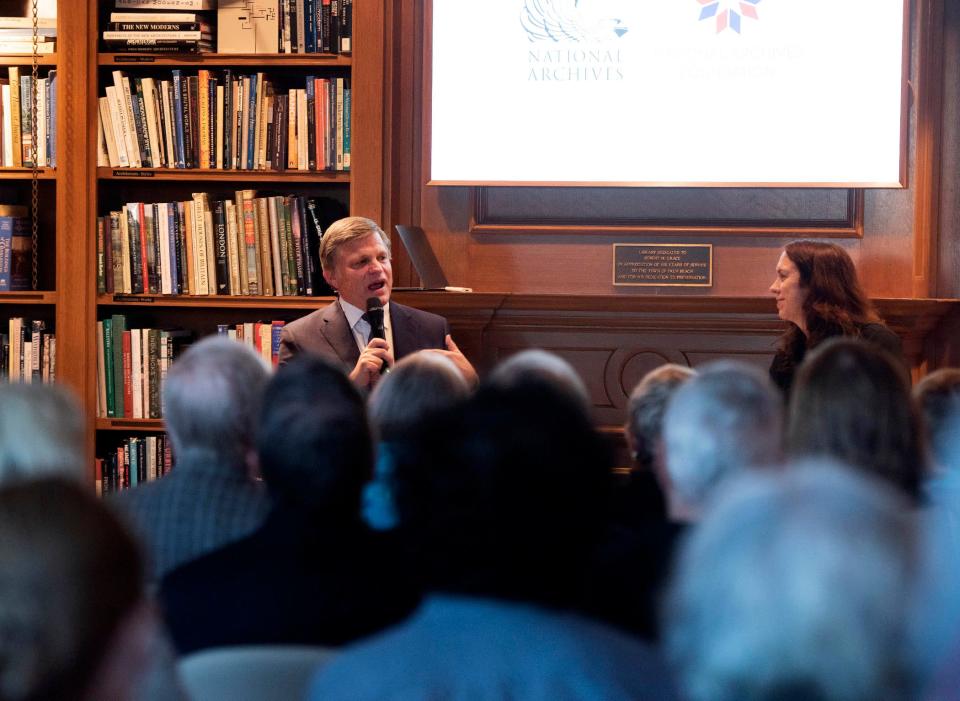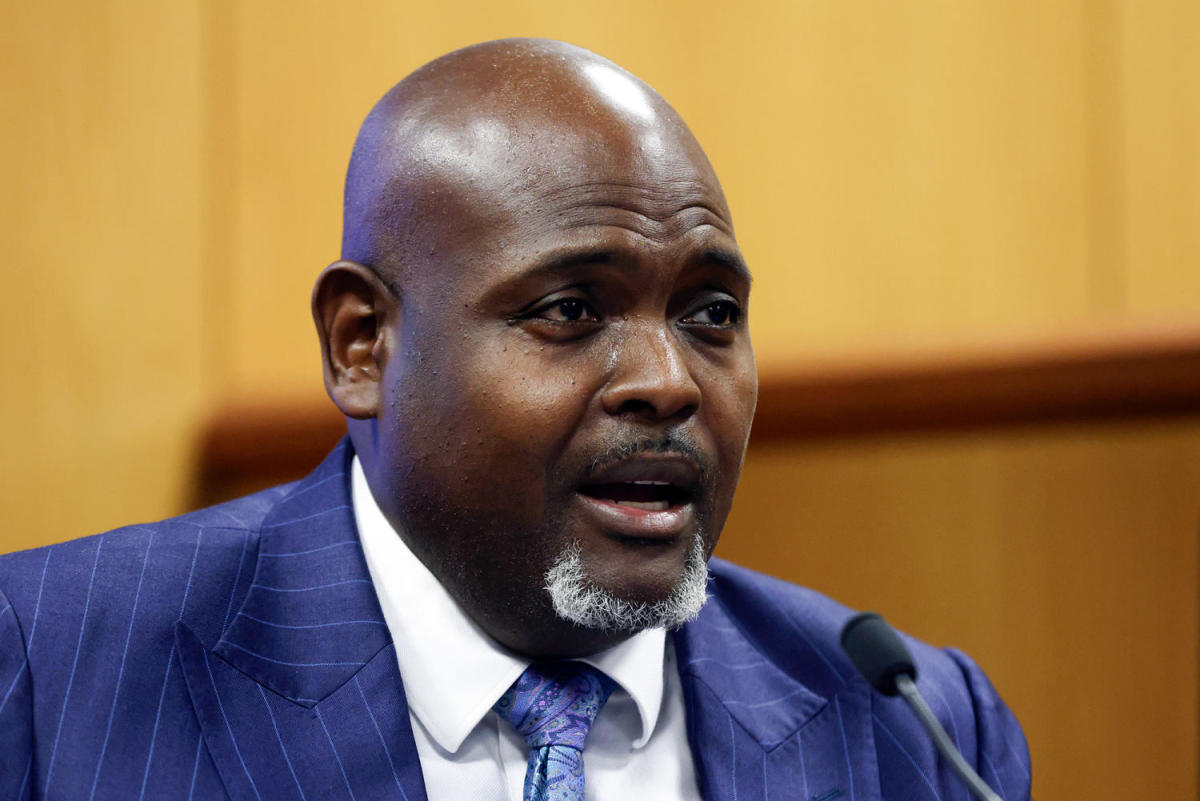The National Archives and Records Administration has cleared a backlog of 400,000 veterans’ records requests that had kept many veterans from receiving their benefits, U.S. Archivist Colleen J. Shogan said Tuesday in Palm Beach.
“Just about three weeks ago, we completely eliminated the backlog. It’s at zero,” Shogan said during a Fireside Chat hosted by the Preservation Foundation of Palm Beach.
Interviewed by renowned presidential historian Doug Brinkley, who teaches history at Rice University, Shogan said clearing the backlog had been her priority since being confirmed in May 2023 as the first woman to hold the position permanently.
Fueled by the personnel limitations caused by the COVID-19 pandemic, the backlog had slowed the process for veterans and their families to get benefits, petition for military awards and make funeral arrangements, she said.
To reduce risk of the backlog returning, Shogan said the agency is collaborating with the Veteran Affairs Department to digitize all military records to further streamline the record request and storage process.
Military documents make up only a portion of the 13.5 billion historical federal documents in the U.S. Archives possession, she said.
Other notable documents mentioned by Shogan include a collection of historical U.S. posters housed in the agency’s Maryland location; the skin of a mole sent by a Civil War widow as proof for a military pension; and a collection of coded letters sent by Confederate leaders to John Wilkes Booth before his assassination of President Abraham Lincoln.
“It was kind of amazing, to see that cypher and then see the letters that then became part of the federal case that went forward with the co-conspirators,” she said of the letters.

She also highlighted the agency’s second task of leading civic-based public outreach, which will include leading a celebration of the nation’s 250th anniversary on 2026. As part of the future celebration, Shogan announced that within the next two years, the Emancipation Proclamation will be on permanent display at the National Archives in Washington, D. C.
“Right now it only goes on display three days a year,” Shogan said. “But when we build the new case, it will provide the environment that will arrest any degradation in the document.”
Also key to the agency’s civic engagement, she said, are the 15 presidential libraries. “To me, they’re like classrooms of democracy … in fact, I think that’s how Ronald Reagan described his own presidential library,” Shogan said.
As an example, Shogan recalled a 2023 trip to the George H. W. Bush Library and Museum at Texas A&M.
“When I walked into that library I was surrounded by hundreds of kids,” Shogan said. “They were packed into (former) President Bush’s auditorium, and they were so interested … they were all sitting there so attentive listening to the presentation.”
When Brinkley asked if Shogan had a favorite presidential library, she replied that each institution had its own distinct approach to documenting and presenting its respective president. However, she did commend the Lyndon B. Johnson Library and Museum at the University of Texas at Austin for its coverage of former first lady Lady Bird Johnson.
“Probably there is no better (example of a) forgotten story than Lady Bird Johnson, which has been rewritten by historians now about how influential she actually was in some of the biggest decisions that LBJ made,” she said. “So, I think they do a very good job of that at the LBJ Library.”
The lecture also featured Shogan discussing her own personal journey to the position of archivist of the U.S., during which she thanked her childhood neighbors for cultivating her interest in the social sciences and U.S. politics.
“I actually lived next door to Hungarian immigrants that fled the Communist regime in Hungary in the 1950s,” she said. “That was really important, growing up living next door to someone who had that experience … and how the United States was different from the place they fled.”
Diego Diaz Lasa is a journalist at the Palm Beach Daily News, part of the USA TODAY Florida Network. You can reach him at dlasa@pbdailynews.com. Help support our journalism. Subscribe today.
This article originally appeared on Palm Beach Daily News: Archivist says U.S. has cleared backlog of veterans records requests
Signup bonus from




